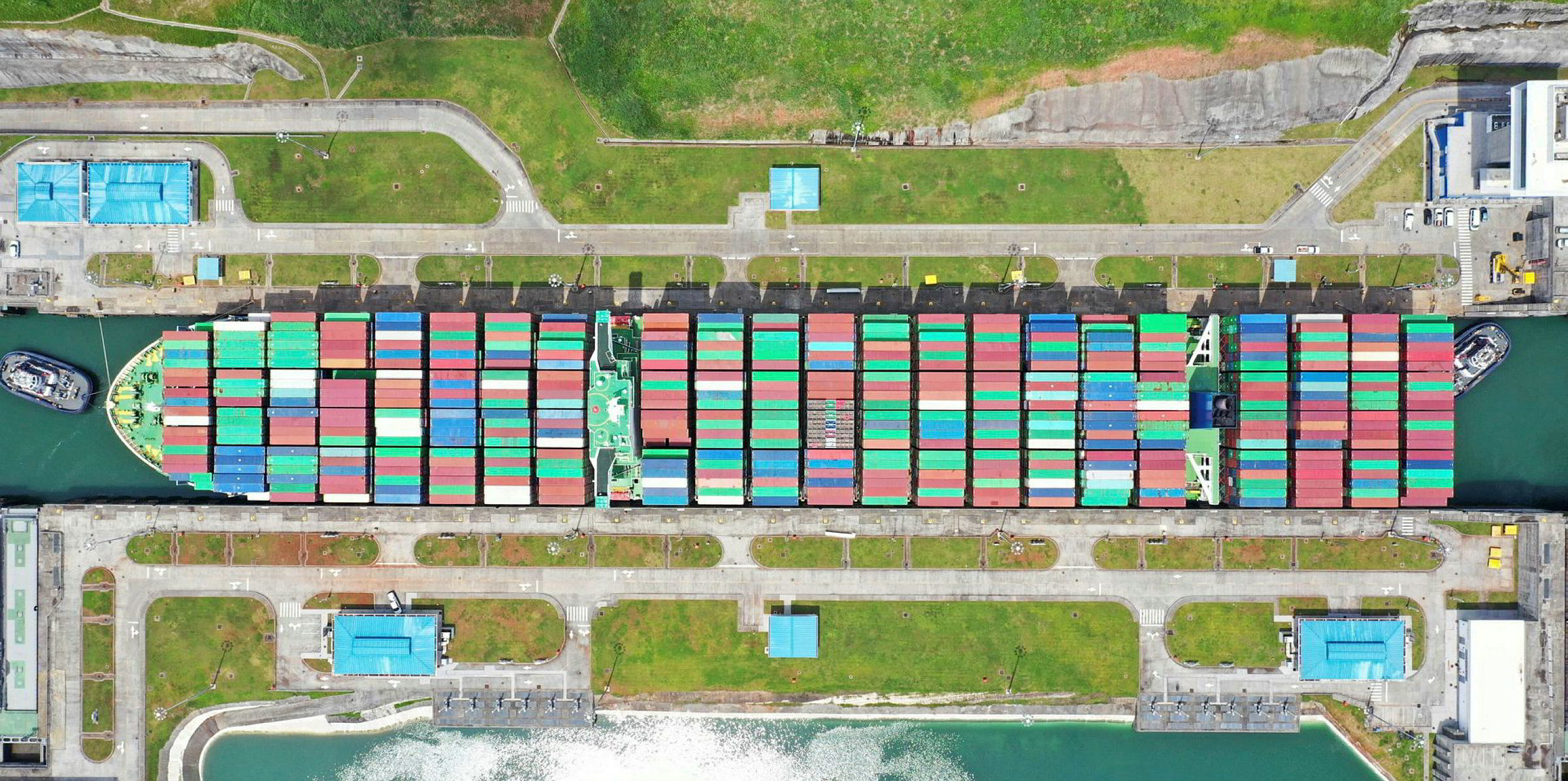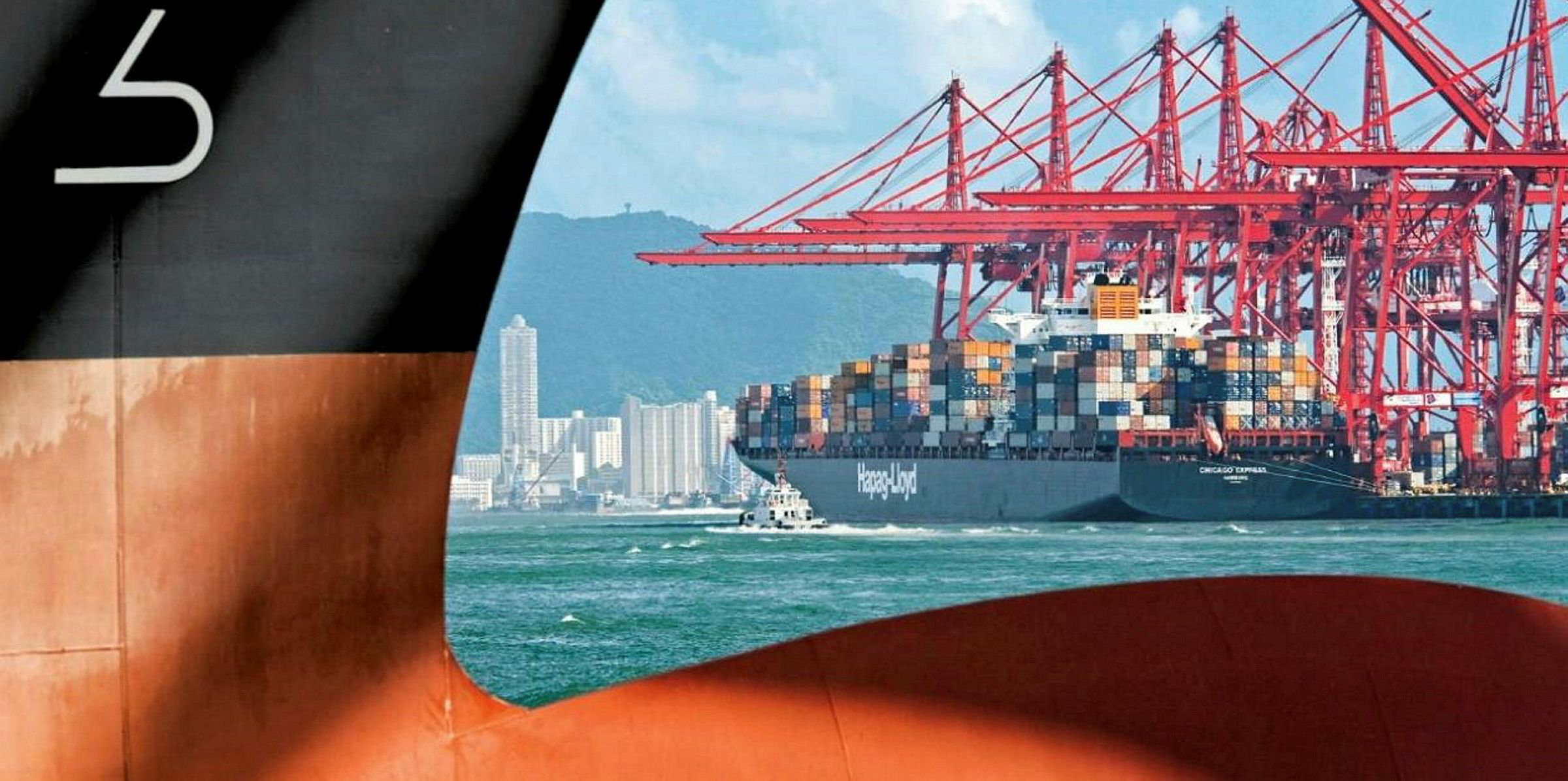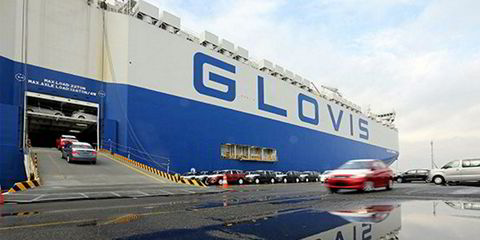Container freight rates from China to the US west coast rose by nearly one-quarter last week as shippers sought to beat additional tariffs expected from 1 October.
But rising transpacific freight rates ahead of peak season contrast with the Asia to Europe trade, where weaker demand is leading lines to cull services.
Rates from Shanghai to Los Angeles rose 23% to $1,685 per 40-ft (feu) container in the week to 5 September, according to the World Container Index (WCI).
The sharp rise is attributed to the advance shipping of containers.
Golden week
“Prices this September will likely be supported by rush orders ahead of October 1’s tariff increases, the Golden Week bottleneck and Black Friday inventory stocking,” Eytan Buchman of container freight marketplace Freightos said.
Rates rose less dramatically from China to the US east coast. The trade from Shanghai to New York registered a 7% rise to $2,685 per feu, according to the World Container Index.
The improvements come despite increasing numbers of larger vessels from China transiting the Panama Canal to the US East Coast.
The record for the largest containership to transit the canal was broken on 22 August when the 14,364-teu Thalassa Elpida (built 2014) passed through the new Panama Canal locks.
The Enesel-owned vessel, which has a 51-metre beam and a length overall of nearly 369 metres, operates for Evergreen in an OCEAN Alliance service, which was rerouted in August via Panama instead of Suez.
However, the onset of peak season has so far done little to help the Asia to Europe trade, where spot rates have been heading south since mid-August.
Prices this September will likely be supported by rush orders ahead of October 1’s tariff increases, the Golden Week bottleneck and Black Friday inventory stocking
Eytan Buchman
Freight rates from Shanghai to Rotterdam dropped by 3% to $1,506 per feu, and rates from Shanghai to Genoa fell 6% to $1,838 per feu, according to the WCI.
Restricting capacity
The prospect of weaker demand is one reason the 2M partners have opted to restrict capacity on the Asia-Europe trade.
Maersk and Mediterranean Shipping Co (MSC) are to “temporarily” suspend their AE2/Swan service from the first week of October.
The move will result in the idling of 12 vessels from 17,800 teu to 23,600 teu in carrying capacity.
MSC blamed the decision on an anticipated slowdown in demand during and after China's Golden Week Holiday. The Swiss liner giant hopes to reinstate the service when demand picks up in November.
“The change will help us to match capacity with the expected weaker market demand for shipping services,” the company said.
Meanwhile, long-term contract rates remain on a downward trajectory, slipping by 0.3% in August, according to Xeneta, a freight rate benchmarking platform.
That fall continues a decline that has been ongoing since summer 2018.






